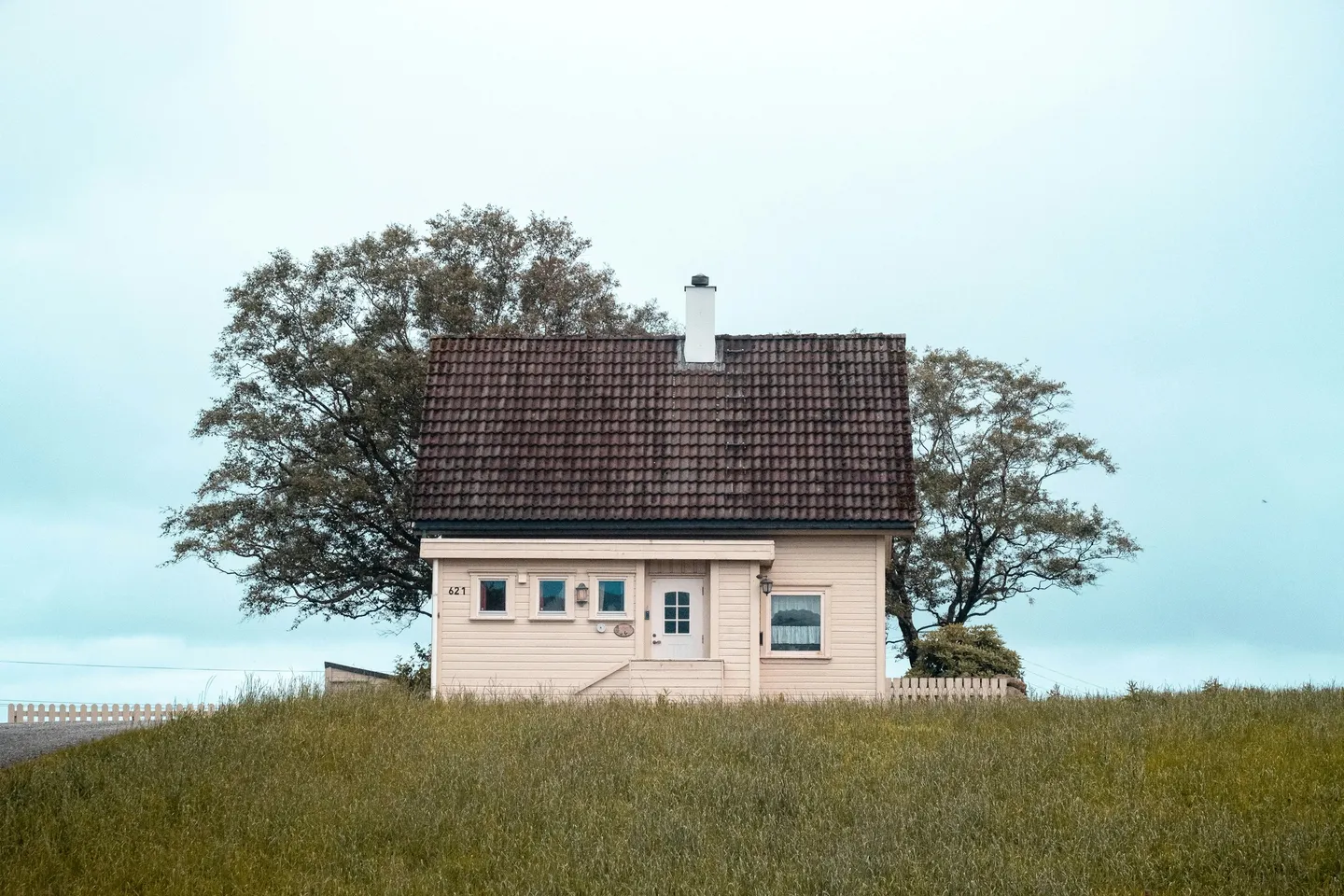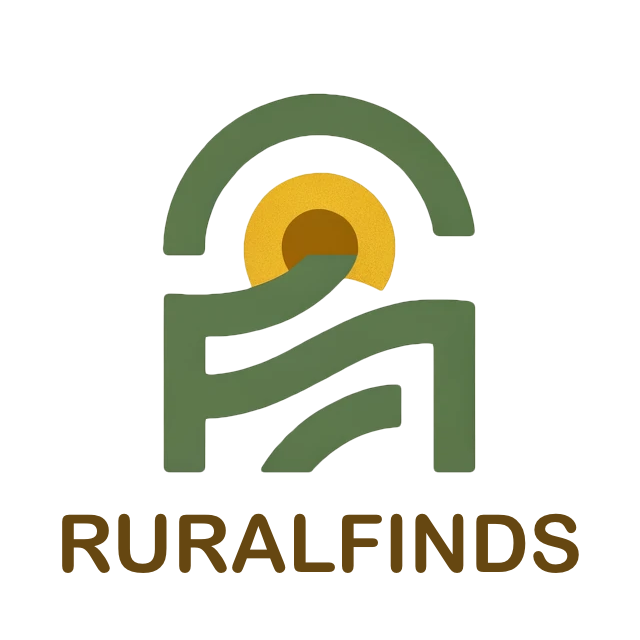Finding Cheap Rural Properties in the UK: Complete 2025 Guide

Photo by Erik Odiin on Unsplash
The UK rural property market presents unique opportunities for savvy buyers willing to navigate its complexities. With rural properties outperforming urban areas by 5 percentage points over the past five years, countryside living offers both lifestyle benefits and investment potential. However, success requires understanding regional variations, specialized resources, and the intricate legal landscape of rural property ownership.
Rural properties have grown 23% in value since 2019 compared to just 18% for urban properties, demonstrating the sustained demand for countryside living. Yet significant regional variations mean buyers can still find exceptional value in the right locations.
Current market dynamics favor strategic rural buyers
The 2025 rural property market shows remarkable resilience despite economic challenges. County Durham leads affordability at £109,980 average, while other northern regions including East Ayrshire (£122,500) and Inverclyde (£125,000) offer compelling value propositions. These areas benefit from strong community infrastructure, heritage appeal, and excellent transport links while maintaining prices well below national averages.
Regional performance varies dramatically, with northern areas achieving 8-14% annual growth compared to modest 1-2% in southern regions. This creates clear geographic arbitrage opportunities for buyers willing to consider locations beyond traditional rural hotspots like the Cotswolds and Devon.
The most affordable rural opportunities exist in County Durham, Copeland (Cumbria), Wyre (Lancashire), and various Scottish regions. These areas combine genuine countryside character with prices often 50-60% below southern equivalents, while still offering modern amenities and connectivity.
Specialized platforms unlock hidden rural property deals
Beyond mainstream portals like Rightmove and Zoopla, UK Land & Farms stands out as the premier specialized platform for rural properties over 3 acres. This dedicated resource features farms, agricultural land, equestrian properties, and country estates often overlooked by general buyers.
Rural Scene, operating since 1994, offers personalized service connecting buyers with equestrian properties, farms, and smallholdings across England, Wales, and Scotland. Their specialist approach means access to properties rarely advertised elsewhere, particularly valuable for buyers seeking unique rural opportunities.
The most successful rural property hunters register with multiple specialist agents including Savills Rural, Knight Frank Rural, and Strutt & Parker Rural. These premium agents handle exclusive off-market opportunities and understand the complexities of agricultural law, planning permissions, and financing options.
Regional specialists provide deeper local knowledge and community connections. Halls Rural Professional excels in traditional farming regions like Shropshire and Worcestershire, while C&D Rural dominates Cumbria and the Scottish Borders. Building relationships with these specialists often reveals opportunities before they reach public markets.
Property auctions offer consistent 10-30% discounts
Property auctions represent one of the most reliable strategies for securing rural properties below market value. Major auction houses like Auction House, Clive Emson, and SDL Auctions regularly feature rural properties requiring renovation or quick sale.
Auction guide prices typically indicate 15-20% below expected sale prices, creating immediate value for prepared buyers. The key advantages include transparent pricing, immediate exchange of contracts, and no gazumping risk. Most houses now offer telephone, internet, and proxy bidding options, making participation accessible from anywhere.
Successful auction buyers conduct thorough pre-sale research including legal pack analysis, structural surveys, and financing arrangements. Properties requiring renovation often achieve the highest discounts, with savings of £25,000-£70,000 common compared to renovated equivalents.
Off-market opportunities require systematic networking
The most significant rural property discounts come from off-market transactions, often 10-25% below public market values. Direct mail campaigns targeting property owners in desired postcodes generate consistent responses from motivated sellers avoiding public marketing costs and competition.
Building relationships with local estate agents creates access to properties before public listing. Many agents maintain private databases of potential sellers and match them with registered buyers before advertising begins. This approach requires patience but consistently produces superior deals.
Rural communities offer unique networking opportunities through parish councils, village events, agricultural shows, and local businesses. Pub landlords, farm suppliers, and veterinarians often know about impending property sales months before they reach the market. Regular visits to target areas and genuine community engagement create valuable information networks.
The “three D’s” - debt, divorce, and death - drive most distressed property sales. Monitoring probate records, building solicitor relationships, and tracking business difficulties help identify motivated sellers requiring quick transactions.
Strategic timing maximizes rural property opportunities
Seasonal factors significantly impact rural property availability and pricing. Winter months (December-February) consistently offer the best buying opportunities as sellers face personal pressures, tax deadlines, and reduced buyer competition.
Rural properties prove harder to view and assess during winter months, deterring casual buyers while creating opportunities for serious investors. Properties returning to market after failed summer sales often feature motivated sellers willing to accept realistic offers.
Post-holiday periods in January-March see increased inventory as sellers implement New Year decisions. Combined with reduced competition from families avoiding school-term moves, these periods offer optimal buying conditions.
Economic timing also matters significantly. Interest rate changes, local employment disruptions, and agricultural market fluctuations create motivated sellers in specific regions. Monitoring these factors helps identify emerging opportunities before they become obvious to other buyers.
Legal complexities require specialist professional guidance
Rural property purchases involve unique legal considerations rarely encountered in urban transactions. Agricultural occupancy conditions (agricultural ties) restrict property occupancy to agricultural workers, reducing values by 30-50% but creating opportunities for qualifying buyers.
Planning permissions and permitted development rights offer significant value creation potential. Class Q rights allow agricultural building conversions to residential use without full planning permission, while Class R enables flexible commercial conversions. Understanding these rights helps identify properties with hidden development potential.
Agricultural Holdings Act tenancies create complex landlord-tenant relationships affecting property values and usage rights. Pre-1995 tenancies offer lifetime security of tenure while newer Farm Business Tenancies provide greater landlord flexibility. Professional legal advice proves essential for understanding existing obligations and rights.
Listed building considerations add another complexity layer. England’s 374,000+ listed buildings require special consent for alterations but often qualify for heritage grants and tax reliefs. The key is understanding maintenance obligations and development restrictions before purchase.
Financing rural properties demands specialized lenders
Traditional high street lenders often restrict lending on properties over 10 acres or those with agricultural ties. Specialist rural lenders including Farm and Country Finance, Rural 1st, and agricultural departments within major banks understand countryside property financing.
Agricultural mortgages offer up to 95% loan-to-value for suitable properties, while commercial lending serves working agricultural businesses. The key is demonstrating income stability and property value through detailed business plans and professional valuations.
Offset mortgages prove particularly valuable for rural buyers with variable incomes from farming, tourism, or seasonal businesses. These products allow surplus cash to offset mortgage interest while maintaining access to funds for seasonal requirements.
Bridge financing often proves necessary for auction purchases or quick completions. Specialist rural finance brokers navigate complex lending requirements and identify suitable products for unique rural property situations.
Due diligence requires comprehensive rural-specific checks
Rural property purchases demand extensive due diligence beyond standard residential surveys. Boundary surveys by RICS-qualified professionals prove essential as Land Registry plans show only general boundaries for rural properties, creating higher dispute risks.
Access rights and easements require careful investigation. Legal access via adopted roads, private road maintenance responsibilities, utility easements, and agricultural access rights for large machinery can significantly impact property usage and costs.
Environmental searches identify Sites of Special Scientific Interest (SSSI), Tree Preservation Orders, and protected species habitats affecting development rights. England’s 4,000+ SSSIs cover 8% of land area and impose strict restrictions on damaging activities.
Utility availability presents major challenges in remote locations. Electricity connections can cost £10,000+ for remote properties, while private water supplies require Environment Agency licenses and regular quality testing. Septic tanks and private drainage systems require ongoing maintenance and environmental compliance.
Renovation opportunities multiply investment returns
Properties requiring renovation consistently offer the highest discounts in rural markets. Visual indicators including overgrown gardens, boarded windows, and dated interior photos help identify opportunities overlooked by other buyers.
David and Heather Burton’s cottage success demonstrates typical renovation potential: purchasing a 200-year-old cottage via sealed bid in severely dilapidated condition, they transformed it through systematic renovation focusing on structural integrity first, then aesthetic improvements.
Luke Thomas’s Welsh cottage project shows innovative approaches to rural renovation. By reversing the property layout to maximize garden views and adding a lean-to kitchen conservatory, he created flexible living space suitable for modern needs while respecting traditional character.
Energy efficiency improvements offer both immediate benefits and long-term value creation. Government grants support heritage building restoration, while modern insulation and heating systems dramatically reduce ongoing costs in drafty period properties.
Regional variations create clear investment strategies
Northern England and Scotland offer the most compelling value propositions for rural property investment. County Durham’s £109,980 average represents exceptional value for countryside living with heritage appeal and community infrastructure.
Scottish Highlands and Borders regions provide remote countryside character at competitive prices, though buyers must consider access challenges and infrastructure limitations. The key is balancing remoteness with practical necessities like broadband connectivity and healthcare access.
Dumfries & Galloway exemplifies Scottish rural value, offering former dairy farm conversions, coastal properties with development potential, and traditional stone cottages in village settings. Agricultural land with conversion possibilities creates additional value opportunities.
Welsh valleys including Merthyr Tydfil and Powys combine stunning landscapes with affordable prices, though buyers should understand local employment markets and transport links.
Success requires systematic implementation
The most successful rural property buyers implement systematic approaches combining multiple strategies. Register with 3-5 specialist agents in target regions while maintaining active searches on specialized platforms.
Build comprehensive professional teams including rural solicitors, agricultural surveyors, and specialist mortgage brokers before beginning serious property searches. These relationships prove essential for quick decision-making when opportunities arise.
Establish regular presence in target areas through community events, local business relationships, and systematic area exploration. Rural property success often depends on local knowledge and timing that only comes from consistent engagement.
Monitor public records including probate filings, planning applications, and Land Registry changes to identify emerging opportunities before they reach broader markets.
The rural property market rewards preparation, patience, and professional guidance. While the complexities exceed urban property investment, the combination of lifestyle benefits, value appreciation potential, and discount opportunities makes rural property investment compelling for buyers willing to master its unique requirements.
Current market conditions favor rural buyers who understand regional variations, utilize specialized resources, and implement systematic search strategies. From £109,980 cottages in County Durham to renovation opportunities throughout the UK, exceptional rural property value exists for prepared buyers willing to navigate the countryside property market’s distinctive challenges and opportunities.
Essential Resources for Rural Property Buyers
Specialized Property Platforms:
- UK Land & Farms - Premier platform for rural properties over 3 acres
- Rural Scene - Specialist equestrian and farming properties
- Property Auctions UK - Rural auction opportunities
Professional Services:
- Savills Rural - Premium rural property specialists
- Farm and Country Finance - Agricultural mortgage specialists
- Historic England - Listed building guidance
Government Resources:
- UK House Price Index - Official price data
- Protected Areas Guidance - Environmental restrictions
- Agricultural Tenancy Information - Legal framework guidance
